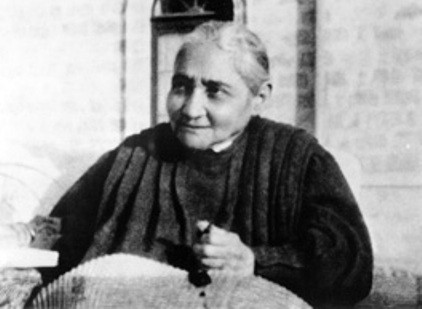Can We Apply the Promise of Jesus to Sr. Faustina for Divine Mercy Sunday to Souls in Purgatory?

First of all, we need to understand what an “Indulgence” is. For a fuller treatment of that, go here:
But in a nutshell, remember this: An Indulgence is not a “transfer of merit” or a “transfer” of anything. This is a common misconception. An Indulgence is the pope opening up the treasury of merits of Christ and the saints (that are infinite, by the way, because Christ’s merits are infinite. The merits of the saints are only meritorious because they participate in the infinite merits of Christ. They do not and cannot add to those merits.) so that our merits are supersized. It is kind of like “where two or three are gathered together there am I in the midst of them” (Matt. 18:19) on steroids. There is power in general in our gathering together in prayer verses praying alone. But our merits joined with the infinite merits of Christ and the saints and in concert with the pope exercising the keys of the kingdom and applying those merits in a particular way cause our prayers and good deeds accomplished in Christ to merit far more than they would have apart from the Indulgence. Indeed, if we meet the criteria for a Plenary Indulgence we merit the grace to fully purify one soul (either ourself or a soul in Purgatory) so that he can be finally and fully purified and possess God in the beatific vision.
Now, with that little point of clarification, the answer to the question is: Because Pope St. John Paul II declared an Indulgence for Divine Mercy Sunday, we can apply that Indulgence either to ourself or to a soul in Purgatory, just like any other Indulgence. And this was, no doubt, one of the many ways Pope St. John Paul II encouraged devotion to Divine Mercy. But the promise made by Jesus to Sr. Faustina concerning Divine Mercy Sunday and the Indulgence gifted to the Church by Pope St. John Paul II are two essentially different things.
So, when it comes to the Indulgence of Pope St. John Paul II, the standard five conditions necessary for any Plenary Indulgence are obviously be required here as well: Sacramental confession and Eucharistic Communion within ca. a week or so from the time the pious act required for the Indulgence is accomplished are the first two requirements. Then, prayer for the intentions of the pope and perfect detachment from all sins both venial and mortal. The fifth requirement, of course, is the specific and necessary works designated by the pope as required for the Indulgence. And in the case of Pope St. John Paul II’s Divine Mercy Sunday Indulgence, it is really simple: either take part in the public prayers and devotions held in honor of Divine Mercy in a church or chapel, or, recite the Our Father and the Creed, adding a devout prayer to the merciful Lord Jesus, for example, “Merciful Jesus, I trust in you!”
Of course, the hard part is being “fully detached from all sins both mortal and venial.” And we can never be absolutely certain we have attained that requirement apart from a private revelation from our Lord. So we can never be absolutely certain we have gained a Plenary Indulgence, apart from a private revelation from God. But we can have moral certainty, if we are in a state of grace (and we cannot have absolute certainty of this, but we can have a moral certainty we are), that we have merited at least a partial Indulgence, meaning, we have merited some part of the required temporal punishment for a soul in Purgatory, or for ourself—our choice—to be remitted.
Finally, to receive the special graces that our Lord Jesus Christ promised for Divine Mercy Sunday to Sr. Faustina, the only conditions are to make a good Sacramental Confession of sins, receive Holy Communion worthily on Divine Mercy Sunday (or the Vigil celebration), trust in Christ’s Divine Mercy, and remain in a state of grace. These graces can be received by any soul in a state of grace. There is no need for “perfect detachment from all sins both mortal and venial” as there is with gaining an Indulgence. And unlike the case with Indulgences, these special graces can only be received for oneself.






